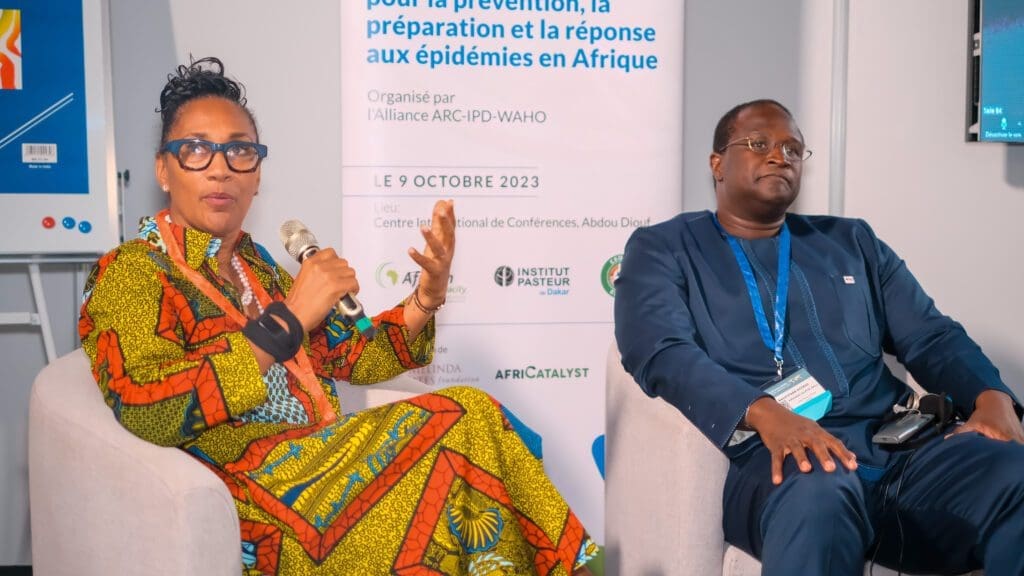Blog
African experts call for unity to resuscitate fragile healthcare sector
Decades after independence, African countries are grappling with the challenge of providing quality and affordable healthcare to their citizens. According to the World Health Organization, Africa carries 25% of the world’s disease burden, but its share of global health expenditures is less than 1%. Moreover, just 1.8% of medicines it consumes, are manufactured within the continent.
One Alliance, however, is trying to change the narrative and succeed where numerous policy solutions have failed. On Monday, the African Risk Capacity Group (ARC), Institut Pasteur de Dakar (IPD), and the West African Health Organization (WAHO) met in the Senegalese capital Dakar to unveil their strategic collaboration plan, with support from the Bill & Melinda Gates Foundation (BMGF).
“We need to increase capacity, funding, and the institution needed to have the will to work faster and effectively,” implored Dr. Amadou Sall, CEO of Institut Pasteur de Dakar, a leading drug and vaccine manufacturer in the continent. “Having an integrated approach to strengthening epidemic preparedness and response in the ECOWAS region will be crucial to instigate impactful public policies. Through this roundtable, our objective is to progress in our ambition to unlock the transformative power of collaboration.”
The hybrid event, held on the sidelines of the Grand Challenges Annual Meeting, under the theme “Building Strategic Partnerships for Epidemic Prevention, “Building Strategic Partnerships for Epidemic Prevention, Preparedness and Response in Africa” explored the opportunities and challenges inherent in collaborative efforts to combat epidemics in Africa.
“Getting agencies to work together and within themselves is sometimes hard. Our African team aims to support local African institutions; we stepped in to provide funding and resources that can help these organizations optimize their work. But it’s not just about resources, it is also about how different partners coordinate with each other,” remarked Natasha Quist, Deputy Director and Regional Representative of West and Central Africa, at the Bill & Melinda Gates Foundation.

Recent outbreaks of epidemics in Africa have illustrated the value of having a coordinated, harmonized, and timely response across member states. For example, during the COVID-19 pandemic, some countries instituted lockdowns while others didn’t. These disparities make it harder to contain the spread and create effective systems to detect epidemics even before they erupt.
“Our objective and ambition is to be inclusive. So, we are very much open to welcoming some new members to join us so that they can add value to what we are doing. Our mindset and spirit are to make sure we expand the Alliance to not only the ECOWAS region but across Africa, and our objective and ambition is to be inclusive,” explained Ibrahima Cheikh Diong, the Director-General of the African Risk Capacity Group.
To bridge the vaccine inequalities witnessed during the COVID-19 pandemic, the Africa CDC, in partnership with the WHO, created the Africa Medical Supplies Platform (AMSP), which allows pharmaceutical companies across the continent to source, purchase, and export drugs easily through a coordinated platform. The success of the model has demonstrated the value of partnerships in healthcare.
“When we are taking on partnerships, we at Africa CDC are guided by three main elements: Accountability, Transparency, and Respect; Aligning the priorities of different member states, the member states identify their needs, and we as Africa CDC come in and support," added Dr. Ngashi Ngongo, Chief Of Staff and Head of Executive Office, Africa CDC.
But coordination alone isn’t sufficient. In 2001, African countries agreed to allocate at least 15% of their budgets to the health sector, yet 22 years later, only six have kept the commitment. Increased investment is necessary for harnessing state-of-the-art technologies and constructing robust infrastructure not limited to hospitals and drug storage facilities.
Laurence Lannes, Senior Economist (Health) from the World Bank, highlighted that the multilateral lender is currently hosting pandemic funds, $2 billion in total. The funds have been set aside to respond to future pandemics in low and middle-income countries; with 37 countries in six regions so far having benefitted.
“There will be a second round of funding at the end of 2023. As far as COVID-19 is concerned, we realized that we weren’t adequately prepared as a financing institution to respond quickly to an emergency because of our procedures. The bank since that time has reinvented its effort and made instruments more flexible to tackle future epidemics,” she said.
In June 2022, ARC, IPD, and WAHO came together and launched a historic tripartite alliance to facilitate an integrated approach that combines sound public policies, innovative financing solutions, and cutting-edge technologies. AfriCatalyst’s CEO Daouda Sembene, who was instrumental in the formation, unveiled a new motto to power the next phase of the Alliance – Scale Ambition Gender Efficiency, or simply SAGE.
“We listed these four words to illustrate the Alliance’s value addition and its aims to get things done. Whatever we do in Africa, to make it impactful, we must be able to scale it up. System efficiency is crucial to our objectives, as opposed to simply having conversations,” he emphasized.
The event concluded with a call to action to pursue inclusivity, diversity, and a demand-driven approach focused only on the needs of both West Africa and the entire continent. All eyes are on what the Alliance can achieve in the coming months.
